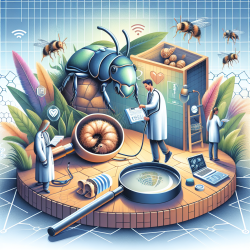In the realm of animal welfare, invertebrates often remain overshadowed by their vertebrate counterparts. However, recent research is shedding light on the importance of considering invertebrate welfare as a significant aspect of animal ethics. The editorial "Ethics and Invertebrates: The Problem Is Us" highlights the need to broaden our understanding and appreciation of these creatures that make up approximately 98% of animal species on Earth.
The Overlooked Majority
Invertebrates, despite their vast numbers and diversity, have historically been neglected in scientific research and public awareness. This oversight is largely due to anthropocentric views that prioritize vertebrate animals, which are more relatable to humans. The lack of knowledge about invertebrates has resulted in minimal legislative protection for their welfare, with few exceptions such as cephalopods in certain regions.
The research underscores the necessity for practitioners to expand their knowledge about invertebrates. By doing so, they can contribute to a more inclusive approach to animal welfare that recognizes the intelligence and sensitivity of these creatures. For instance, bees can learn from one another, butterflies navigate vast distances, and octopuses exhibit remarkable problem-solving abilities.
Changing Perceptions Through Education
A significant barrier to improving invertebrate welfare is the general public's lack of understanding and often negative perceptions of these animals. Educational initiatives aimed at children and teachers can play a crucial role in changing these attitudes. Studies have shown that exposure to invertebrates through outdoor education and hands-on experiences can foster positive attitudes and reduce fear or disgust.
- School Gardens: Incorporating gardens into school curriculums can teach children about ecosystems and the role of invertebrates within them.
- Interactive Learning: Programs that encourage direct interaction with insects and other invertebrates can help demystify these creatures.
The Role of Practitioners
Practitioners in fields such as education, therapy, and conservation have a unique opportunity to influence how society perceives and treats invertebrates. By integrating findings from recent research into their practices, they can advocate for more comprehensive welfare policies that include all animals, regardless of size or complexity.
Ethics and Invertebrates: The Problem Is Us, offers valuable insights into why we must extend our ethical considerations to include these often-overlooked species. By embracing this challenge, practitioners can lead the way in fostering a more inclusive understanding of animal welfare.
To read the original research paper, please follow this link: Ethics and Invertebrates: The Problem Is Us.










